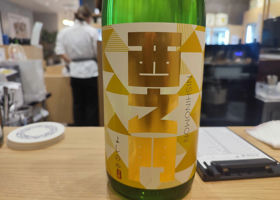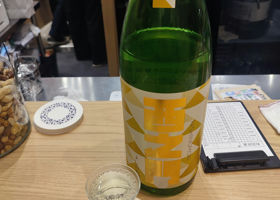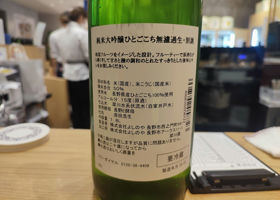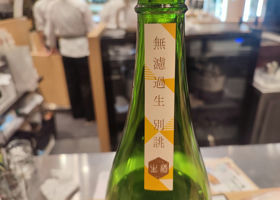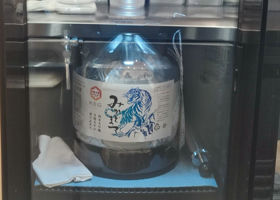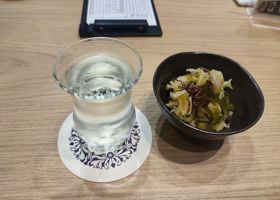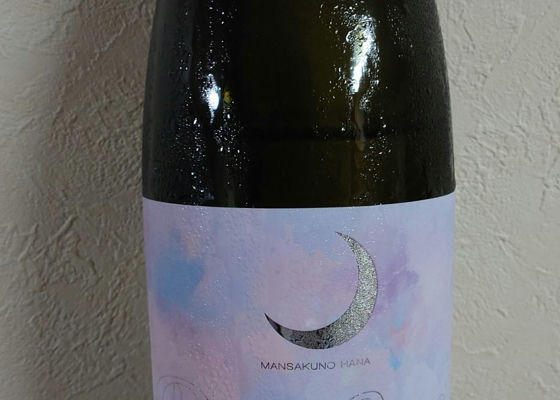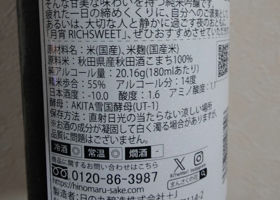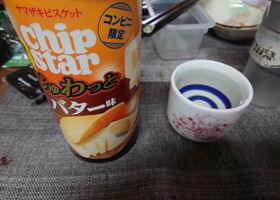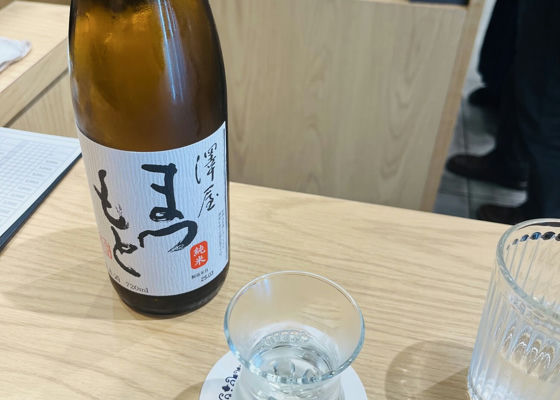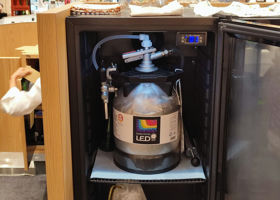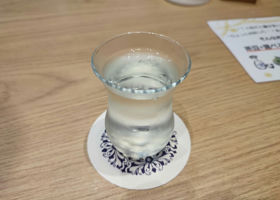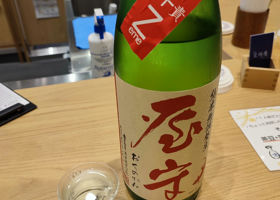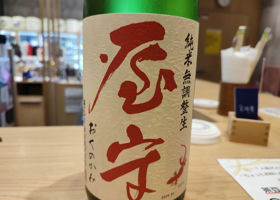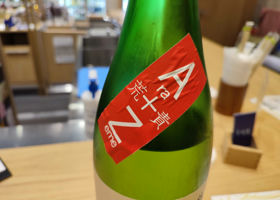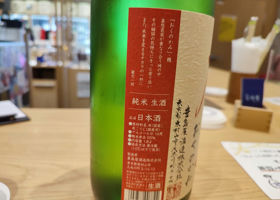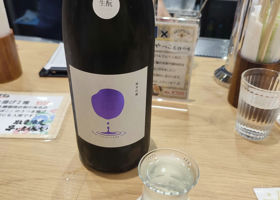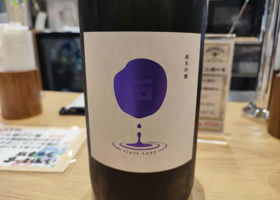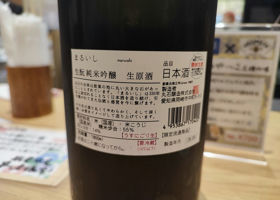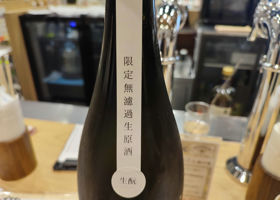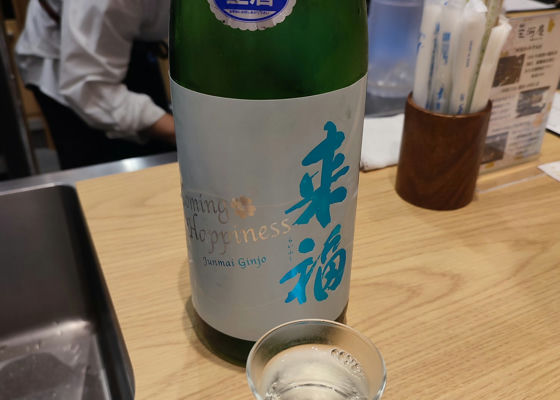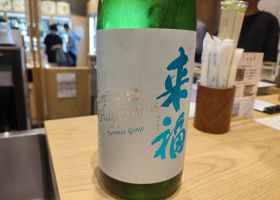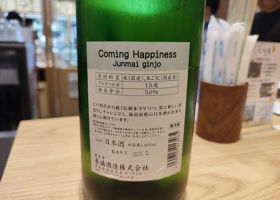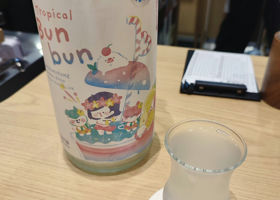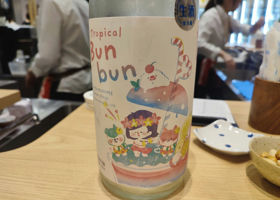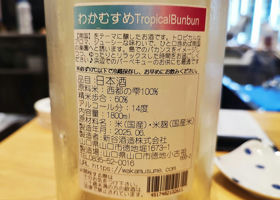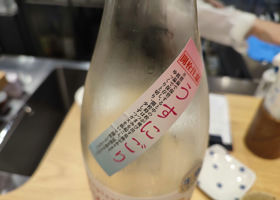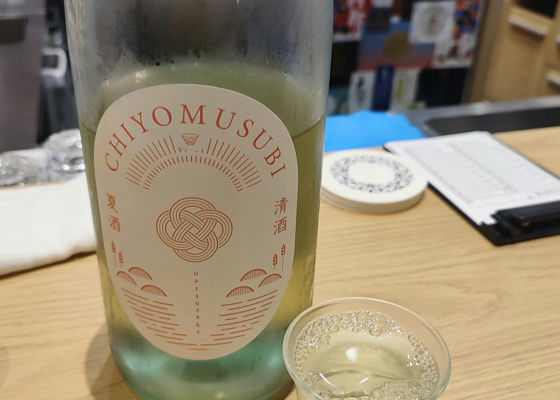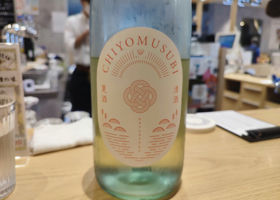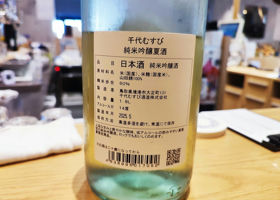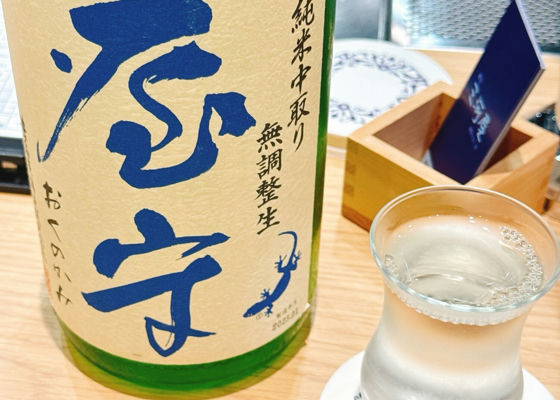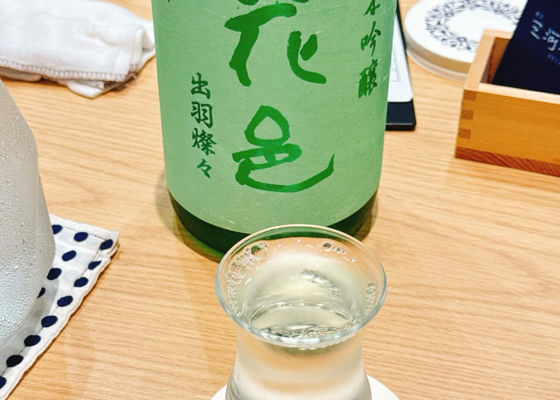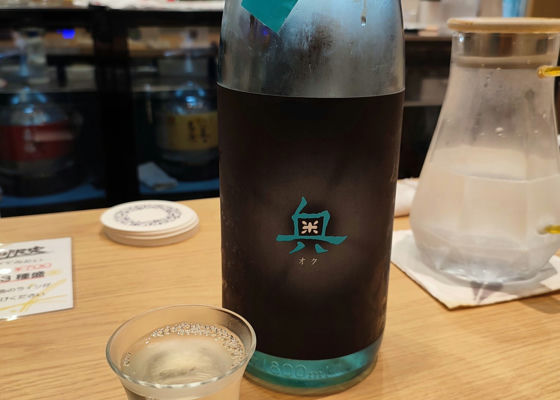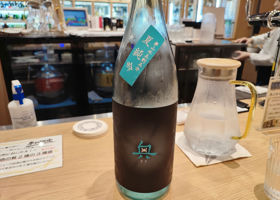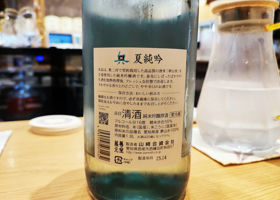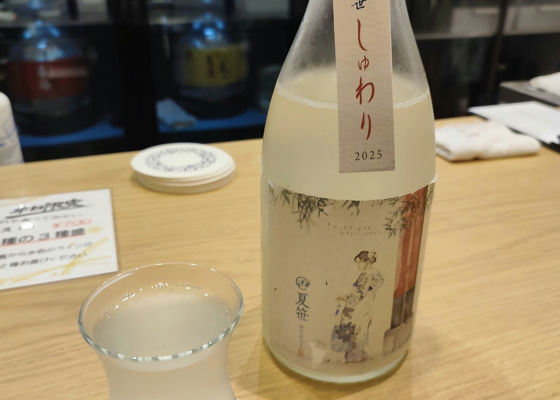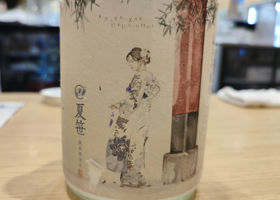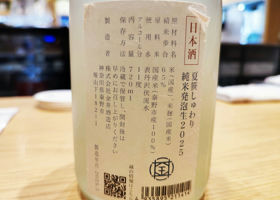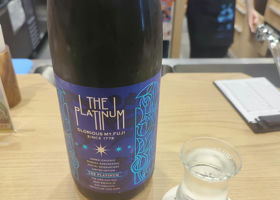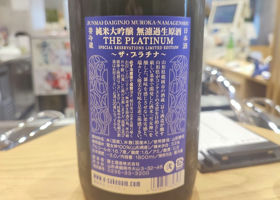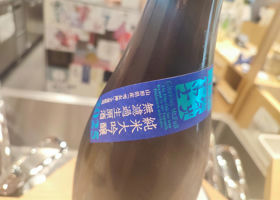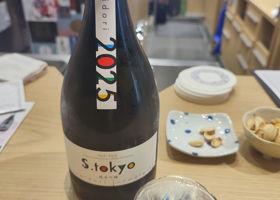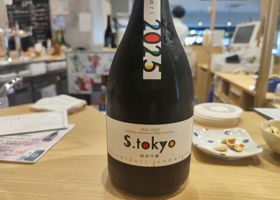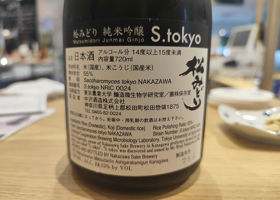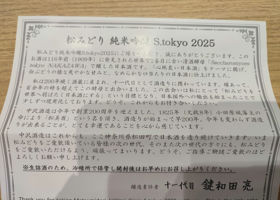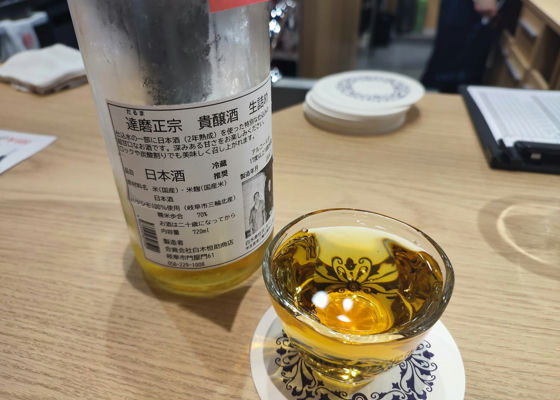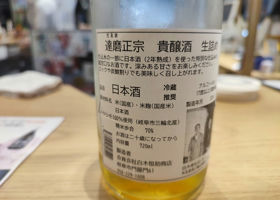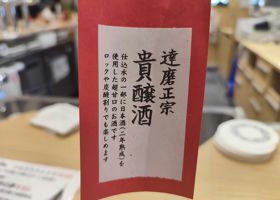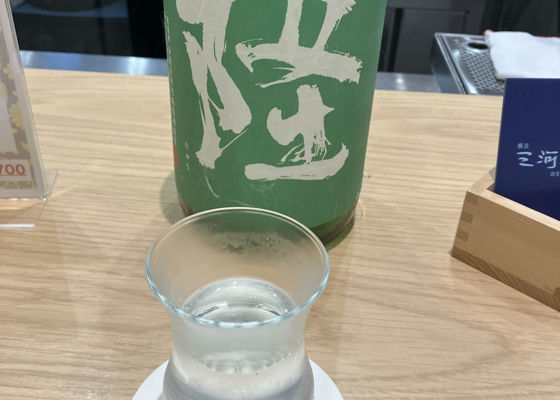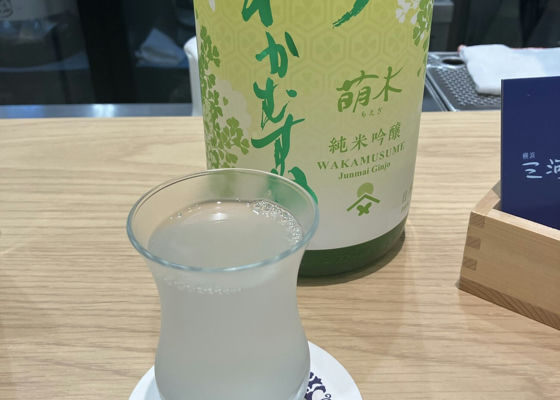Timeline
rmtFine carbonated melon juice 這松100% Hitokochi from Nagano, Japan
Tropical flavor like pineapple or mango.
Moderate acidity enhances the sweetness. 這松Tangy and slightly effervescent.
It is very dry but soft and fruity.
Cool and refreshing on the nose.
Champagne lovers will like it. 山廃純米I finally started having withdrawal symptoms, so I went to the liquor store for the first time in a few weeks. Among the various Manzaku I've been drinking, this was the first Gasshiroi. It is the opposite of Umakara, with its low alcohol content, a mild flavor, and the natural sweetness of rice spreading through the bottle. The specifications are almost all written on the label on the back of the bottle, so I'll spare you the details. I think this Gassho-Yoi might be better with cheese than as a food wine. However, since it's before my paycheck, I'll have it with potato chips. Personally, I think it would be good with snacks. So, I enjoyed this bottle from a prestigious brewery in Yokote, Akita. rmtJunmai sake. The sweetness seems to linger on the tongue. 這松Naruto Thai Red.
Made with "LED Dream Yeast" mutated by irradiating LEDs.
Like a fizzy pineapple yogurt!
Gorgeous aroma and strong acidity!
Nanikore~! Yummmm~!
No bottle because it is kegged. 這松The name "Yamori" is written "Okunokami".
It is characterized by being unfiltered, unpasteurized, and stored fresh.
It has a fresh, fruity, sweet aroma like green apples that spreads softly in the nostrils, followed by a sharp spiciness, bitterness, and acidity.
It is a rare taste.
It is easy to drink and delicious. 這松Quite sweet and acidic
I would like to drink it chilled to a golden temperature
I like it better if it were a little less sweet. 這松Summer Junmai Ginjo Nama Shu.
It has a tropical fruitiness, but ripe ripe fruit.
It has a strong acidity, but still has a sense of being brewed.
I like it. 這松Junmai Ginjo light nigori.
As the label says, it has a tropical sweetness and acidity reminiscent of pineapple and passion fruit.
It also has a slight bitterness.
You may add a lot of ice. 這松Soft yet tangy Jungin
Summery and refreshing
All-rounder 這松Clear and easy to drink.
Pleasant bitterness and slight acidity.
Slightly banana aroma. 這松Junmai Happo Nama.
Milky lactic acidity like thin calpis.
A slight bitterness lingers on the tongue.
It blows away the hot summer. 這松Mild sweetness with intense fruity notes like ripe peaches felt in the first sip.
A moderate sense of gas leaves a slight bitterness.
This is so good!
Eiko-Fuji is delicious no matter what you drink. 這松A gem brewed with the world's second oldest sake yeast, discovered in 1909.
First time on the palate.
It has a mild, gentle, sticky sweetness.
However, it is slightly sparkling, so it has a refreshing taste. 這松A super-sweet, melt-in-your-mouth sake made with sake that has been aged for two years as part of the brewing water.
Umai! Rich! I love it!
On the rocks with ice.
Goes well with mixed nuts. RecommendedContentsSectionView.title
